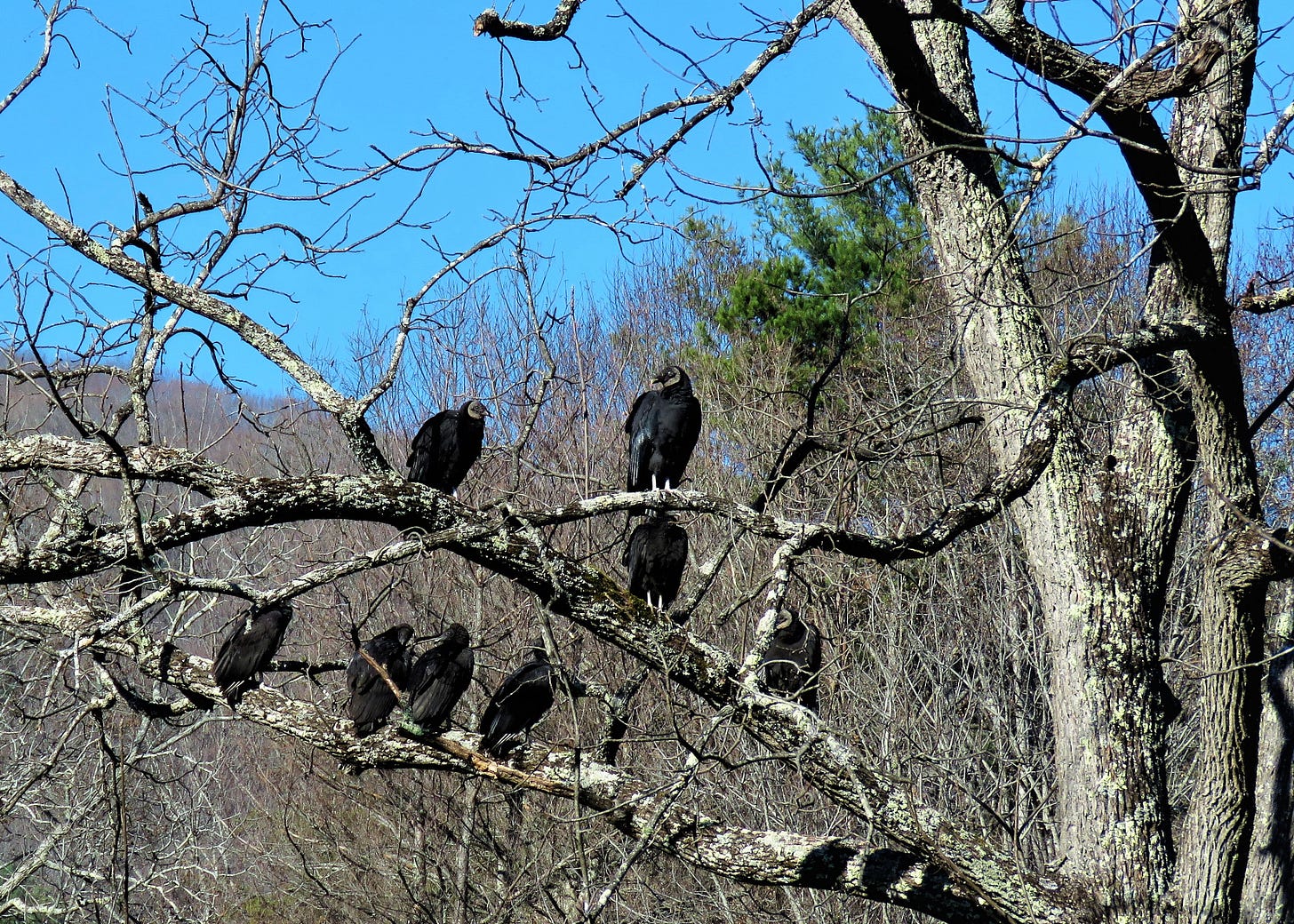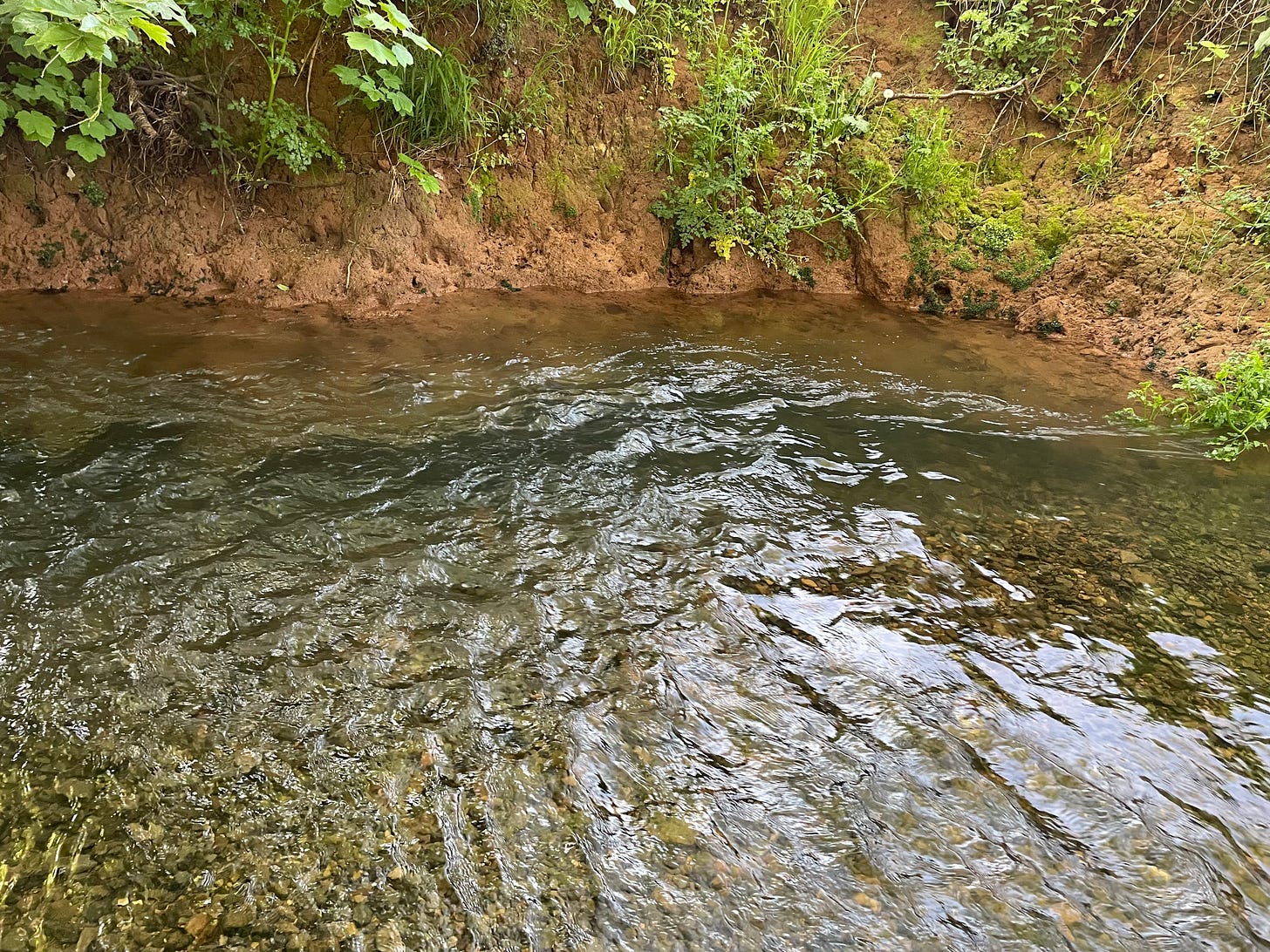While everyone’s narrative of panpsychic engagement arises from the particular relationship between that person and the more-than-human world, in particular the River and community of beings they are engaged with, it is nevertheless possible to identify some common themes, experiences that seem to recur across different individuals and inquiry groups. Each of the co-operative inquiry communities spent time reflecting on and discussing their learnings. We have drawn on these reflections and our own sense-making after searching through the many postings from participants and transcripts of discussions. In this post we explore and illustrate the impact of the inquiry into human participants sense of separate identity. Future posts will explore the other major themes with illustrative quotes from inquiry participants.
‘I’m not who I thought I was’, Kathleen reported. Many participants in the co-operative inquiry spoke of a ‘process of shedding layers or leaves, of shedding ego, shedding the noise in one's own head and concepts’; of ‘settling, listening, healing, of being in communion… reminded of who we are by River, just being stripped back to our essence’.
As we turn toward a sentient world, the ego takes a back seat. This could at times be unsettling. Dave reflected:
One is disoriented at times… one’s self is unexpected, I am brought into relationship with the world which I didn't expect to happen… I don't feel scared of it. But it there's a loss of boundary there, and that necessarily is a little bit alarming at some level.
As we turn toward a sentient world, the ego takes a back seat… Some kind of shift in one sense of self seems essential in this work.
Some kind of shift in one sense of self seems essential in this work. To encounter a sentient, responsive world, the human person needs to let go of that habitual sense of self Alan Watts called the ‘skin encapsulated ego’[1]. We might think of this as bowing – actually or metaphorically – to the wider whole. As David Hinton writes, drawing on ancient Chinese Taoist philosophy:
A bow is one of those elemental movements that can only be called a dance, as it so perfectly expresses a spiritual gesture offering the centre of identity to something beyond.[2]
For Ezekiel this was a quest in its own right:
My sense of self becomes entrenched into habituated way of seeing and way of being in the world. The question comes in like a bolt of lightning and says, ‘Shake all of that off… let go of these habituated patterns, ways of being that have been picked up from the systems in which I'm embedded... They don't teach me to see the sacredness, they don't teach me to see the dynamism, they don't teach me to see the love and reciprocity and interconnection… And now I'm actively engaged in this experiment of restructuring my mind… setting intention about how I want to show up in the world.
Early on in the Living Waters inquiry, Adhip talked about how he was slowly finding his way into relationship with streams and water
My first connection with the stream was in my body. I felt the stream almost cleaning my body in some way, making it more subtle, making it more flexible. I feel as if the past is being cleaned or cleared out of my body, so I can begin to connect with the stream in the present moment… It felt like an invitation, that I was being asked, ‘Become serious, for goodness sake, become serious!’ What does it take to become serious? It demanded that I take my wellies off, meet the water with my senses more fully. So I took my wellies off, and I stepped into the stream, and I felt the cold and everything. And somehow that brought back the memory of a dream, that only music is real. So I tried to sing something, and it didn't feel real. Then I remembered to sing in Hindi, and as soon as I switched to Hindi, something happened. I felt there was a resonance between my emotional state and the flow of the water. I find that very difficult to explain. But somehow I felt I was somehow now in a way in resonance with the stream.
Torsten, a professor of journalism specializing in climate and ecological topics, had prior to the Living Waters inquiry developed a deep relationship with the River Modau, a tributary of the Rhine running through the German state of Hesse. The Modau has been significantly industrialised, with many weirs and other impediments to natural flow. As a trout fisherman and River Keeper of the local fishing club, Torsten works with the River to clear litter and garbage, to restore the more natural flow and to help create places suitable for trout to spawn. He guides school classes along the river, believing that smaller rivers like the Modau are openings to a holistic understanding: you can imagine swimming as a trout through them, get a sense of the whole watershed. His close relationship with Modau is based in childhood:
I always wanted to be a trout somehow, when I was younger. At the same time, I fish them, I kill them, I eat them. I have this circular, somehow Indigenous understanding of doing this. I fished a lot in this river and developed my understanding from a river point of view.
This ‘river point of view’ is also developed through ‘meditating and listening to her… letting the soul be washed by the river’, He calls this relationship She-I-River:
Sometimes I meet her within the daily routines, without being able to appreciate and welcome fully her diverse and rich presence. But she’s also an urban being, crossing lots of villages and cities before she changes again, her faces, her rhythm, the structures, shores – she is many. “She” stands for the kingfisher up there at the steep rocks, for the trout down on the ground, for the stones, the wild peppermint on the shore, for the beaver who has arrived upstream – what an honour that is for all of us; things will grow and flourish with them. We may laugh together, when my thoughts reach the curve or my eye discovers the clean gravel down in the deep spots, where the beauty is hidden and the river hearts beat. She sucks, she pushes, she calms - but not always. I may come to her places without my ‘river eye’ without this grateful attention for all her faces – also the silent, hidden and covered ones. In the city, she’s covered, has to hide. That’s why I want to pay more attention here and open up myself fully to the streams and waves - to discover, to travel with; far from my routines. Once they don’t conquer me. In this moment, I’m in, with, along- flowing, conquering time. Meditating at the shore, losing all in the bubbles.
The process of loosening separate identity can be part of an intentional practice to experience oneself as part of a wider field of subjectivity. Ezekiel again:
I find myself teetering on the edge of awareness, slipping into my own small perspective, expanding out again into a more open and receptive state. I remind myself that right now, I'm immersed in a field of psyche. As my friend and mentor Geneen teaches, I try to act as if all the beings of this place are aware of my presence, as if they're leaning in, curious about why I'm here and what I'm up to. I try to meet this scene with reverence. I try to meet the gaze of these wild beings with love and openness and sincerity.I immediately feel more available.
At other times, one may notice how one is drawn into the wider flow. Peter reported:
I notice the majestic, powerful flow of River. For a moment I feel picked up, taken along by the flow. The ripples come and go; a line of disturbance, an upwelling, a little whirlpool, all appear, hold their form for a while before, dissipating back into the whole. It’s a lesson in the Tao. It reminds me (again) of Siddhartha as ferryman learning everything from River but can only express it in the first Sacred Word, Om.[3] And as I watch River and speak what I see, a turquoise flash as Kingfisher flies across River to the far bank. Today’s visit feels significant, deep, but in some sense inexpressible.
Luisa describes a continual shift observer and co-creator:
That transition between observer and co-creator, it's like breathing in a way just in a different length. Sometimes I'm in one state and then other: sometimes I am thinking as an observer, sometimes I'm communicating directly with river… I don't think it's as planned. It's just this coming in and out. Maybe it gets more intense. In my process of going into the relationship with Manzanares, at first, I feel I arrived as the foreigner, almost a little bit scared, thinking like, will he be mad? It’s been a long time [since I last visited]? ‘Will he answer?’ ‘Am I expecting something?’ All these questions come from the observer, the kind of mind outside. And then slowly, I start finding these doors of entrance where you start this reciprocity? Slowly. I think today the moment that it became reciprocal was with the branch that was toughing my face. At first I was uncomfortable, wonder if I should feel uncomfortable and should I move it? I am uncomfortable, should I be uncomfortable? And then there was a moment where I felt relaxed and just there. I started feeling the branch very slowly gently caress me. And it was an act of love.
I released my need for identity, and it did not mean I did no longer exist.
Later, when Luisa visits a stream in her native Colombia, she sees everything is interconnected:
That was the word. Branches and roots, water and rocks, weaving into one another. And I was part. For a moment I was able to release my idea of self. I became invisible, and it did not frighten me. I released my need for identity, and it did not mean I did no longer exist.
Andrea writes of visiting the upper reaches of Ta-La-Lu, named the Little Campbell River by settlers, which she worked with through three inquiry cycles. She relates to Ta-La-Lu through ceremony that brought about a fleeting sense of oneness. In the following group discussion, she explored this further.
It’s a feeling of no discernible boundaries, where there's just this lovely expansiveness and deep understanding. There is a simplicity, when it lands with such complete understanding, but I can never hold it. I know that something in me utterly shifts. There's just this lovely, complete clarity, so brief, sometimes just so profound. I can only hold it for only a few seconds…
1. Watts, A., The Book on the taboo against knowing who you are. 1989, New York: Vintage.
2. Hinton, D., Hunger Mountain: A field guide to Mind and Landscape. 2012, Boston & London: Shambhala.
3. Hesse, H., Siddhartha. 1951, London: New Directions Publishing Company.




Peter a beautiful co-op inquiry. John haron wrote Sacred Science but it was ABOUT the event. I find it sad substacks is not more graphic sensitive. The words here are sacred. Long ago I used a blog for an undergrad class. I made it very visual. They loved it. Bravo for your class and readers. I feel The River.